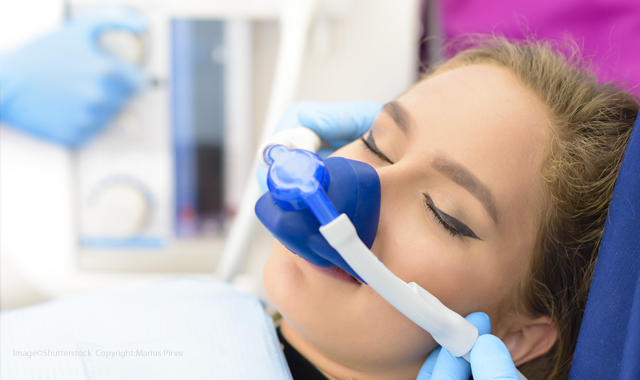Nitrous oxide found to increase success rates of pediatric dental procedures
Researchers in Thailand discovered that local anesthesia combined with preoperative ibuprofen could have an increased success rate in young patients.

Anesthesia is an ongoing challenge in dentistry, especially when working to correct severe disease of the tooth pulp (irreversible pulpitis which causes spontaneous tooth pain) in adult teeth. The difficulty tends to be compounded when dentists work with pediatric patients who have irreversible pulpitis from dental caries of their permanent teeth.
Young, permanent teeth in children have a larger pulp, which increases the blood and nerve supply in young teeth, thereby also increasing sensitivity. Determining the correct method of anesthesia to assist dentists in fixing these young, diseased teeth is imperative.
Researchers from the Chiang Mai University in Thailand published a novel study in the current issue of Anesthesia Progress that compared the success rates of pulpal anesthesia in children pre-medicated with ibuprofen when local anesthesia was combined with inhalation of nitrous oxide with oxygen or with oxygen alone.
Read more: 10 ways to simplify pediatric dentistry
The researchers performed a single-blind study in which 33 children with pulpitis of a permanent molar were included. The children were evaluated preoperatively for fear and anxiety using the Facial Image Scale and pain using the Wong-Baker FACES Pain Rating Scale (WBFPS) in case this affected their intraoperative pain perception. During the procedure, pain perception was measured with the WBFPS. Both scales are easily understandable by children and use pictures of faces that express emotions. Each child was given ibuprofen with a meal approximately one hour before the procedure. Seventeen children were then randomly assigned to the nitrous oxide group and 16 to the oxygen group. Once the gas was administered, the children were given nerve blocks to numb the area, and once numb, the procedure commenced.

The researchers measured the success of the procedure based on the results of the WBFSP. The WBFSP is rated on a zero to 10 scale correlating to “does not hurt” to “hurts the worst.” The method of anesthesia was considered a failure if the score was higher than four during any part of the procedure. Overall, the results showed a success rate of 71 percent in the nitrous oxide group; this was 52 percent higher than the success rate of the oxygen group. Compared with previous local anesthesia studies using nitrous oxide but without preoperative ibuprofen, these results showed an increased success rate in the combination of ibuprofen before the procedure and nitrous oxide during the procedure.
Given these results, the researchers concluded that local anesthesia with nitrous oxide inhalation sedation combined with preoperative ibuprofen could have an increased success rate of pulpal anesthesia in cases of severe pulpitis in pediatric patients. They also believe that these results will benefit from further studies using a larger sample size.
The full text of the article, “Effect of Nitrous Oxide on Pulpal Anesthesia: A Preliminary Study,” Anesthesia Progress, Vol. 65, No. 3, 2018, is available online at http://www.anesthesiaprogress.org/doi/full/10.2344/anpr-65-02-08.
Oral Health Pavilion at HLTH 2024 Highlighted Links Between Dental and General Health
November 4th 2024At HLTH 2024, CareQuest, Colgate-Palmolive, Henry Schein, and PDS Health launched an Oral Health Pavilion to showcase how integrating oral and general health can improve patient outcomes and reduce costs.
Floss & Flip Flops Episode 14: Children's Dental Health Month with Irene Iancu
February 1st 2023The Sanders Sisters invite Irene Iancu, RDH onto the microphone to discuss Children's Dental Health Month, discussing the importance of prevention, counseling and patient-centered care for our pediatric patient population.
Episode 31: Dentsply Sirona Implant Announcements
September 30th 2021DPR’s Editorial Director Noah Levine sat down with Gene Dorff, Dentsply Sirona’s group vice president of implants and Dr. Dan Butterman to review several big announcements the company made in the arena of implants during Dentsply Sirona World 2021 in Las Vegas.